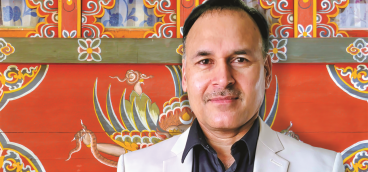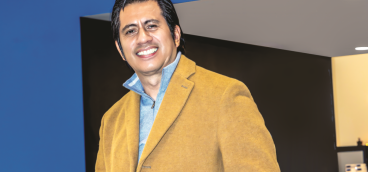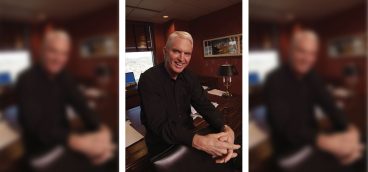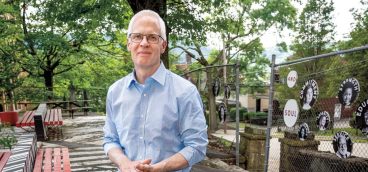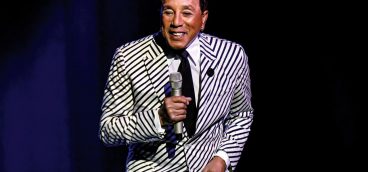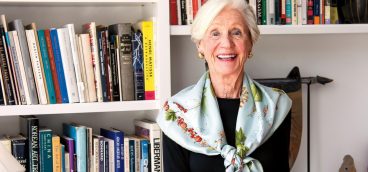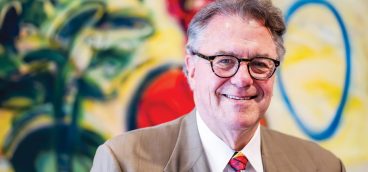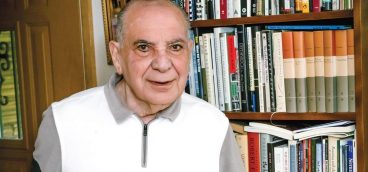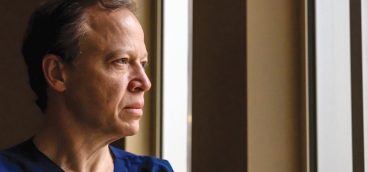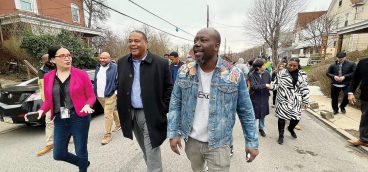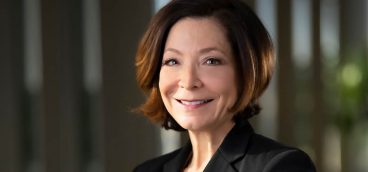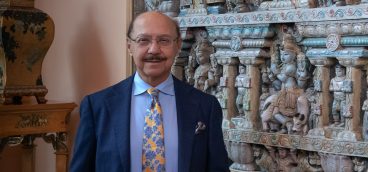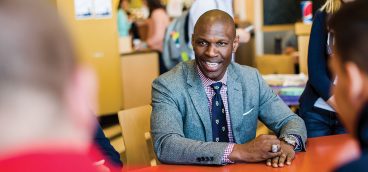What Do I Know? Rev. Paul Abernathy
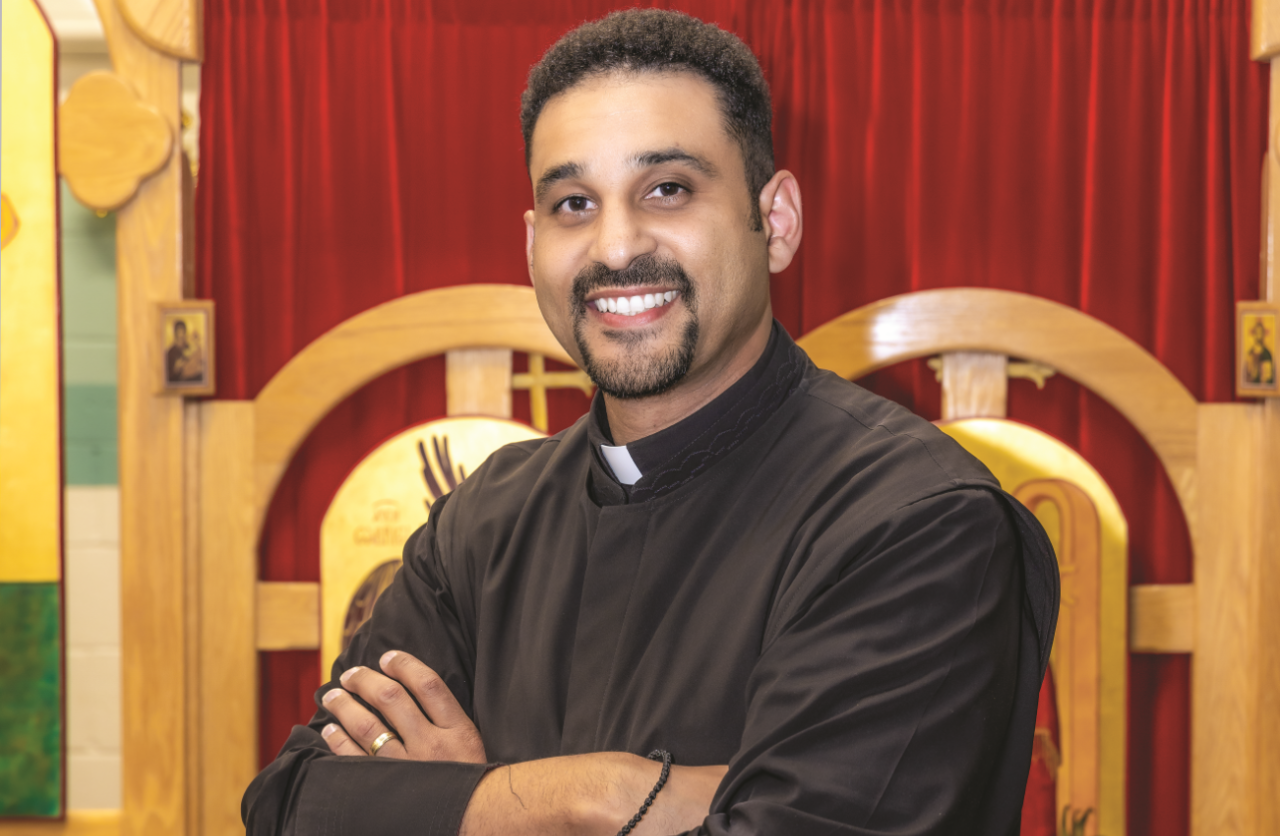
One day, years ago, I asked my congregation in the Hill District where each church member was when 9/11 happened. I remembered where I was, as did most everyone else, and we all shared our recollections. But when the conversation turned to a particular woman, she replied, “I don’t know.” “You don’t know?” I asked. “No. I don’t have any recollection of that.” “You don’t remember the collapse of the Twin Towers, the destruction at the Pentagon, or the plane crash in Somerset?” “Not at all,” she said. I was stunned and decided to learn a bit more about this woman’s life.
She had been raised by a mother who was addicted to drugs, which her mother couldn’t always afford, so she would sometimes offer her daughter as payment to her dealers. I also learned that, while this woman was out drinking one night, she had a “disagreement” with a friend who, in a fit of rage, broke a beer bottle and proceeded to cut her face with the jagged edge. As she continued to tell me other horrific stories from the pages of her life, something occurred to me. This woman had no recollection of 9/11 because her whole life had been a series of 9/11s.
What was most alarming to me about the woman’s life story was the fact that it is not unique in that regard. She had been traumatized repeatedly for years, as have so many people we pass on the street every day. Look around closely and you will see it. For both individuals and entire communities, trauma is everywhere.
I was born in Colorado. My mother was from Pittsburgh and my father was from The Bronx, New York. They were in the Army together and met at Fort Carson, where they got married, and I was born there in 1979. Ultimately, my mother and father didn’t stay together, and shortly after my mother’s discharge from the service, we moved back to the Pittsburgh area. My sister and I were raised in South Fayette by my mother, who is still with us, thank God, and my grandparents, in a lower-class community on Morgan Hill.
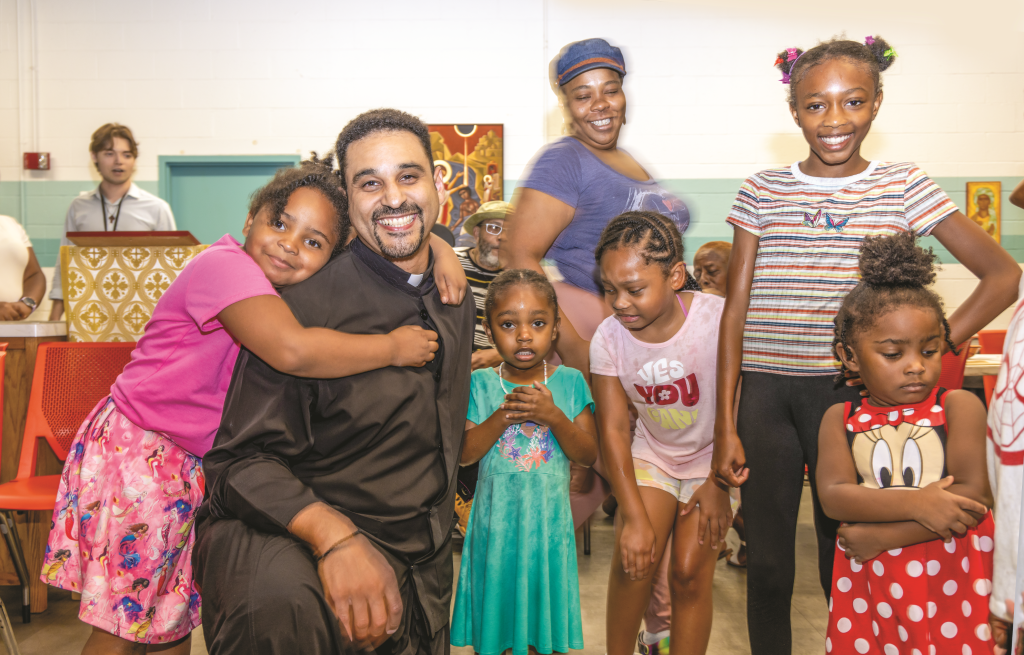
Morgan Hill was home to the “Morgan Projects,” and most of those who lived there, at that time, were black people who had been displaced from the city. Although these projects no longer exist, Morgan Hill was a terrible place to build them in the first place. The community of South Fayette was not welcoming to the projects or the people who lived there, especially because the broader community was mostly white.
In any case, we were blessed with a beautiful family. My mother, grandmother and grandfather were people of devout faith. My grandfather was a World War II veteran — a combat infantry soldier with a Purple Heart and a Bronze Star — who lived a life of service and taught me the value of it. My grandmother wanted to become a nurse, and she did become one. She dreamed of someday going to India as a missionary to care for the poor but, in the end, she dedicated her life to our family instead.
When my grandmother met my grandfather and married him, they went on a honeymoon, at which time my grandfather’s mother fell ill with pneumonia. When they returned, my grandmother spent the whole first night and days thereafter caring for her new mother-in-law. My mother is also a selfless woman who is always filled with joy and life. She is a caring and giving person and, for years, worked at a job that didn’t pay much. People often asked her why she didn’t seek opportunities to advance into leadership positions. She said that she wanted to spend her time serving directly. That’s just who she is.
Unfortunately, I never met my father. I was nine months old when my mother was discharged from the Army and, after his discharge, my father never came to be with us in Pittsburgh. I knew of him, but we never had a conversation. In 2005, when he died, I discovered his death certificate and, some years later, found the Abernathy family via social media. My father had several siblings, most of whom stayed in New York, but the bulk of my extended family now lives in Atlanta, Georgia.
After graduating from high school, I enrolled at Wheeling Jesuit University, which was a wonderful place to be educated. The faith component there was extraordinarily strong. The Jesuits had a notion that, “If you pray, you will act.” One other thing that I appreciated about them was the idea of “magis,” which, in Latin, means “more.” Life is not about what one gets, but how one can be more, do more and serve more.
At Wheeling Jesuit, I had some wonderful mentors, and in my senior year, the university established the “Mother Jones House,” a place for students to live and work in East Wheeling with some ministries that were focused on helping the poor — particularly the black portion of the community. The coursework associated with this helped to prepare me for the work that I’m doing now. The Jesuits gave me my start.
Wheeling, West Virginia, was a positive place to come into adulthood. Even in those days, the Jesuits at the university were taking a hard look at what revitalization might look like in the city. One day, I met with some people from the regional office of HUD [U.S. Department of Housing and Urban Development] and they asked me to come and speak to their community. While I was there, I heard many people talking about the history of the state, and the immense trauma that its communities had to endure, beginning with the Civil War. When that conflict emerged, many people left Virginia and all the internal conflict that was happening there, and created their own, new state. That led to the beginning of the labor movement because the people had suffered so much under the yoke of the coal industry. In recent years, the opioid epidemic has gripped West Virginia, so West Virginians, to this day, continue to suffer immensely.
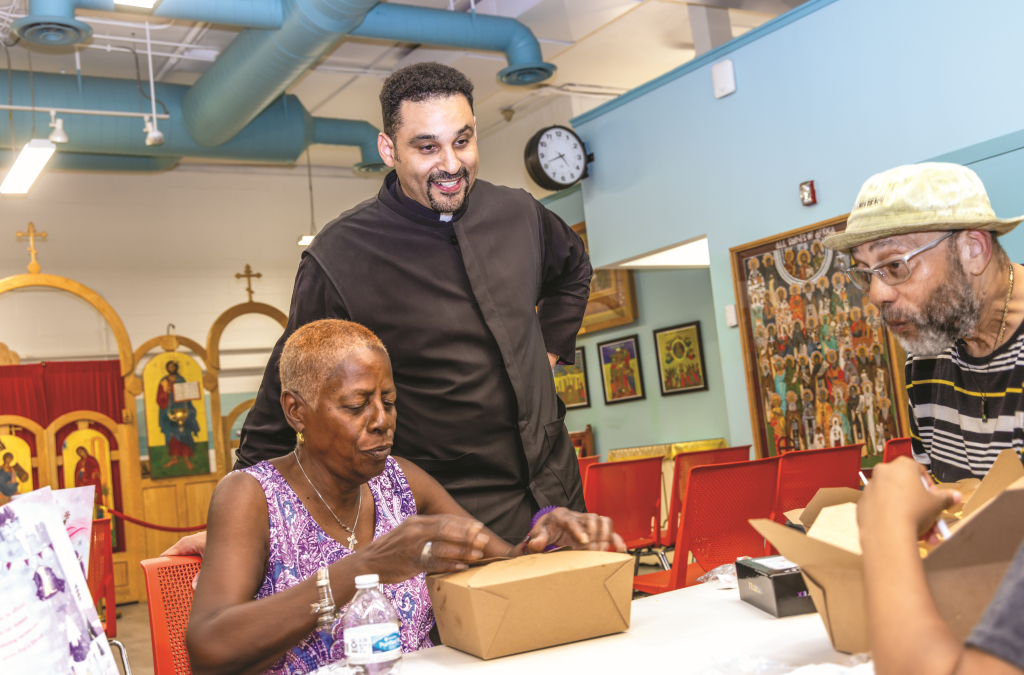
Back when I was 17, I enlisted in the Army Reserve. I did Basic Training, Advanced Individual Training, and stayed on for quite a while, through college and beyond. After 9/11, in 2002, my unit was put on alert, and in January 2003, we were mobilized. We went to Fort Leonard Wood, trained, and were then deployed to Kuwait, to be joined by the Army’s Third Infantry Division. We were stationed on the border of Kuwait and Iraq, waiting for the war to begin. In March 2003, on the first day of the ground war, we crossed into Iraq.
From my point of view, as a young soldier, it seemed to me that we had no real plan for waging and winning that war. I watched as the Saddam Hussein regime was toppled, and the nation descended into chaos. I saw violence tear through that country. My Army comrades and I spent all our time in the Sunni Triangle, which we called the “The Triangle of Death.” I was in-country for a year and had seen enough.
By the time of my discharge, I was very much against the war. I didn’t see the need for it. And I didn’t believe we clearly communicated to the American people the full cost of that war, in terms of the lives that were lost or broken on our side, or the number of innocent Iraqis who perished amid the battles. Many of my fellow soldiers sustained life-altering physical injuries, and many more sustained psychological wounds.
No matter how you cut it, the Iraq war was a terrible experience and, when I came home, I was not at all well. I felt empty. I had been deeply wounded psychologically and was in a dark place. Fortunately, the Orthodox Church took me in, and with its help, I slowly began to heal. Soon, I enrolled at the University of Pittsburgh and got a master’s degree in public and international affairs. Now I’m an Orthodox priest.
Early on in my ministry, we were astonished that, in our own community, the Hill District, we were seeing higher levels of post-traumatic stress than I saw in Iraq, and we coined the term “Community Trauma” to describe the situation. Curious, I went to see if any literature had been published about this issue, and the only studies that came close to describing it were done by researchers who had looked at communities that had experienced catastrophic natural events. There was no understanding of the layering of trauma that had befallen groups of people in our country over multiple generations.
Having witnessed the immense pain that was present in our community, I was determined to develop a response to the stark reality. After all, how could we have successful community development without a deeper healing within the community? That’s what we’re attempting to do at the Neighborhood Resilience Project. We are virtual pioneers in the realm of Community Trauma because we are no longer willing to ignore the cries that we hear from all around, and the suffering that characterizes life in communities like ours.
At the Neighborhood Resilience Project, we’ve helped to develop strategies to heal traumatized communities in Pittsburgh and throughout the nation. Of course, we realize that certain communities have borne disproportionate levels of trauma through multiple generations. Healing in such places can be quite elusive. And to be sure, in some communities, attempts have been made toward revitalization, but these attempts have largely failed, unfortunately resulting in the kinds of gentrification that make it impossible for longtime locals to remain. We are now in partnership with many community groups, governmental agencies, community-based organizations, and health care services — not to mention places of worship — here and across the nation, all of which are beginning to see the need to address Community Trauma.
Our organization’s mission was inspired by the civil rights movement of the 1960s. From it, we learned the importance of developing an infrastructure that would enable communities to raise and lift the right people into positions of leadership. Rosa Parks was trained; so was Martin Luther King, Jr. They had as support the Highlander Institute, the Non-Violence Training Centers in Nashville, Tennessee, and the Freedom and Citizenship schools. Together, these institutions formed a sturdy infrastructure that enabled people who were often under-educated, disenfranchised and impoverished to become agents of change, not only in the Jim Crow South, but throughout the U.S. We need that kind of infrastructure today to propel a “Movement of Healing” wherein people who were once wounded can become healers; where those who were once powerless can gain power enough to heal their neighbors; and where those who had lost their voices can finally speak out for themselves and their communities.
As I researched what we call Community Trauma, it was fascinating to learn that, in the West African nation of Benin — one of the capitals of the slave trade — a reporter remarked that, even today, when there is a knock at someone’s door there, the cultural response is to ask, “Human or slave trader?” Why? Because many people throughout Benin’s history had been taken from their villages in this way and were never seen again. So, you see, intergenerational trauma can affect whole communities, and even nations.
On the home front, we have found that intergenerational trauma is still very real in America. Consider the plight of African Americans. As the descendants of slaves, we are still not free from the trauma of how we arrived here and how we were forced to live for centuries thereafter. Think about how our names were taken from us. Today, we carry surnames that, ethnically, don’t reflect who or what we are. My last name is “Abernathy.” I must be Irish, right? That name is evidence of my stolen roots, but I try not to think about that too much. I’d rather think about the Rev. Ralph Abernathy and what he did, with virtue and honor, working alongside Martin Luther King, Jr. That great man gave a whole new meaning to my last name. Nevertheless, often I still reflect on how we, as a nation, have handled our issues of racial tension and conflict. We have tried to address our differences and injustices in the courtroom, and on the streets. But we’ve never had a moment of true healing in this regard. We’ve never had a moment of reconciliation, and I think this might be a job for our generation.
So, I’m from Pittsburgh, Pennsylvania. It’s my home and I love it here. But it pains me to see that our state is now identified as one of the top 10 places in the United States when it comes to the presence of white supremacist groups. To me, this is heartbreaking. But I think, as citizens, we must stare this down. I believe that we’re greater than the hatred we find in our midst. And we must work hard to build, as Martin Luther King said, a “beloved community.” We can’t just say it. We must do it. It is my hope that the work we’re doing at the Neighborhood Resilience Project is being done in the spirit of Dr. King’s beloved community. After all, how can we become a beloved community if we continue to neglect those who have been weighed down by trauma for generations? Trauma stifles life. It stunts growth. It steals hope and sows the seeds of violence. We must address this. If we do, we can heal ourselves with a little love and compassion.



